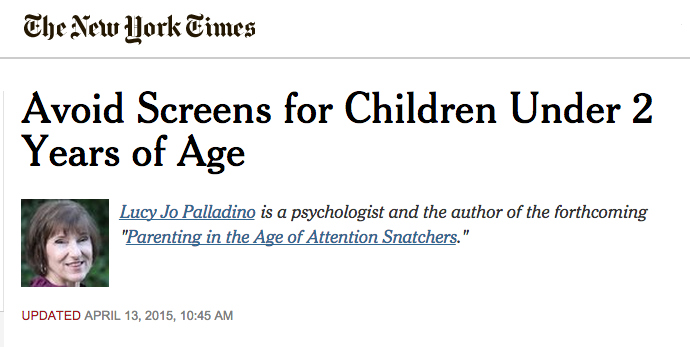At a workshop for educators last year, several preschool teachers told me they didn’t want iPads in their classrooms. The iPads were introduced however, because a number of the parents felt strongly that children need to start early to be technologically competent at school. What is the best route to technological competence for your child?
ASK A 5-YEAR-OLD
Next time you’re befuddled by Windows, consider this: Last Fall, Ayan Qureshi of Coventry, England, passed the industry-wide Microsoft Certified Professional exam. Ayan is five years old. In his words, the test was “difficult but enjoyable.”
Ayan’s path began at age three. He liked to sit down next to his father, an IT consultant, and watch. Over time, his dad explained the basics to him and gave him old computers to take apart. Ayan played with hard drives and motherboards.
While other kids were captivated by iPad apps and TV, Ayan installed and configured operating systems, tinkered with routers and switches, and read Microsoft books. “I knew that if I introduced him to the games, he would not go for this,” his dad astutely observed. Today, Ayan spends two hours a day in his homemade computer lab. He appears to have retained his childlike wonder. He likes compasses, telescopes, and told a reporter, “The rainbow colored light reflected through a prism is amazing.”
WHAT EVERY PARENT CAN DO
Ayan is exceptional. But here’s what I especially like about his story.
1. Ayan’s dad welcomed his son’s presence by his side. No doubt he had deadlines to meet, demands from clients, and a heavy workload like everyone else. Yet he made time and sent his son an inviting happy-you’re-here-with-me vibe.
2. Ayan’s dad paid attention to his son. He recognized Ayan’s knack for computers, patiently instructed him, and chose hands-on learning materials.
3. Ayan was encouraged, not pushed, with a spirit of exploration and discovery, not stress and competition.
4. Ayan was an active learner. It takes greater effort to figure out computer parts and sustain focus on a Microsoft book than it does to learn from videos and games. Ayan practiced and strengthened his voluntary attention.
5. Ayan’s parents had the courage of their convictions. They acted on their knowledge that Ayan was too young to choose voluntary over involuntary attention. It's tough enough for an adult to reach for a Microsoft text instead of a video game.
PARTICIPATE!
To guide your child’s development of technological competence, be mindful of the difference between attention that’s captured by a screen (involuntary) and more effortful, self-directed attention (voluntary), like Ayan’s. As your children mature, help them grasp this important difference for themselves. Protect young children by encouraging voluntary attention, as Ayan’s parents did.
You don't need to be an IT specialist like Ayan's dad to guide your child. The two of you can go online and learn together. Ask your child to teach you his favorite games. Play them together, so you have common ground for an ongoing conversation about their effects, both good and bad. From time to time, deconstruct digital media together. Look at posts, ads, and what makes a game addictive. Take apart a TV show the way Ayan disassembled an old computer.









